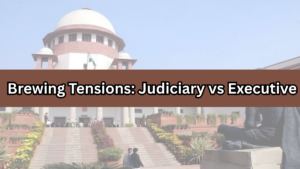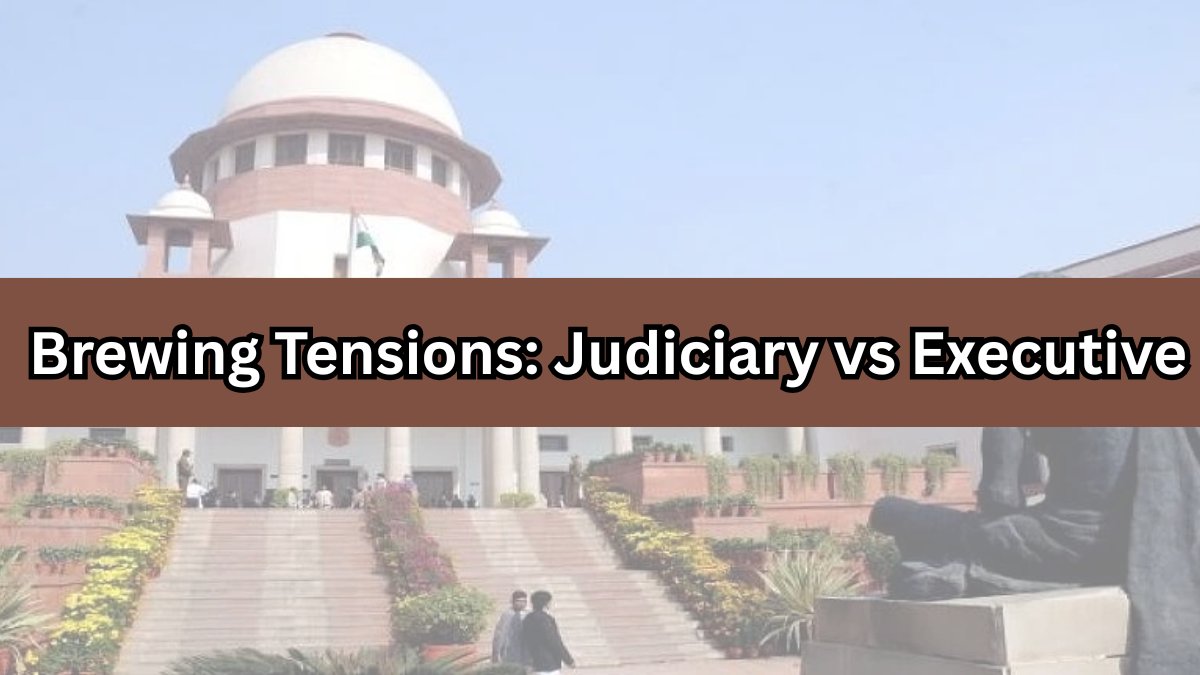As India’s highest judicial body faces growing political heat, a striking observation from Justice BR Gavai—soon to become the Chief Justice of India—has brought fresh focus to the increasingly uneasy relationship between the judiciary and the executive.
Let’s walk you through the backdrop, the key events, and why this unfolding situation matters to every citizen who values democracy.

Setting the Stage: Judiciary vs Executive Tensions
The current controversy traces back to a bold Supreme Court ruling, which directed the President and state Governors to act within a “reasonable timeframe” on Bills passed by legislatures.
-
Supporters praised the decision, calling it a crucial reinforcement of legislative democracy.
-
Critics—especially from the ruling BJP—expressed discontent, accusing the judiciary of overstepping its bounds.
The clash took center stage during a hearing where a lawyer asked the court to direct the Centre to intervene in the ongoing violence in West Bengal.
The West Bengal Violence Petition: An Overview
Advocate Vishnu Shankar Jain highlighted his long-pending plea concerning post-poll violence in Bengal. His latest request included:
-
Deployment of paramilitary forces in sensitive areas
-
Appointment of a three-judge retired panel to probe the violence
-
Submission of a report on Hindu displacement in Murshidabad
However, the Supreme Court Bench, led by Justice Gavai, showed reluctance to step into executive affairs, reminding everyone that unchecked judicial activism could feed into accusations of “overreach.”
Judicial Overreach or Upholding Constitutional Duties?
The Supreme Court’s recent decision, particularly in the Tamil Nadu Governor standoff, emphasized that Governors cannot indefinitely hold back Bills. In doing so, the Court invoked Article 142, granting it special powers to ensure “complete justice.”
| Judicial Insight | Details |
|---|---|
| Judgment Focus | Governors must act promptly on Bills |
| Article Invoked | Article 142 – Powers for complete justice |
| Bench Composition | Justices JB Pardiwala and R Mahadevan |
| Key Message | Constitutionality of Bills rests with courts |
This clarification attempts to strike a balance between respecting constitutional roles and ensuring timely governance.
Political Backlash: BJP Leaders Lash Out
Several BJP leaders expressed strong displeasure at the Supreme Court’s ruling, leading to a political storm:
-
Nishikant Dubey (BJP MP):
-
Criticized the judiciary, saying, “If the Supreme Court decides everything, Parliament should shut down.”
-
Accused the court of creating religious tensions.
-
-
Dinesh Sharma (BJP Leader):
-
Asserted, “The President is supreme; you cannot dictate to the appointing authority.”
-
-
Jagdeep Dhankhar (Vice-President):
-
Compared Article 142 to a “nuclear missile” being used against democratic institutions.
-
Such remarks reveal the depth of unease brewing among political ranks over judicial interventions.
BJP’s Damage Control: ‘Personal Statements’
As criticism from the Opposition mounted, accusing the BJP of attacking judicial independence, the party quickly sought to control the narrative.
-
BJP President JP Nadda distanced the party from its MPs’ controversial comments, stating:
“These are personal statements. The BJP neither agrees with nor supports such remarks. We completely reject them.”
This move shows the party’s awareness of the serious implications such attacks could have on its public image and democratic integrity.
What’s Really at Stake?
This judiciary vs. executive standoff isn’t just political drama—it’s about safeguarding democracy itself. Here’s why it matters:
-
Separation of Powers: The fundamental principle of democracy is being tested in real-time.
-
Judicial Independence: Continuous political attacks could erode the judiciary’s authority.
-
Public Trust: Citizens’ faith in democratic institutions may waver if tensions worsen.
The road ahead demands maturity, respect for constitutional roles, and, above all, a commitment to upholding India’s democratic ethos.
FAQs
1. Why did the Supreme Court intervene regarding Governors and pending Bills?
The Court acted to prevent Governors from indefinitely withholding action on Bills, ensuring legislative democracy is respected and governance remains efficient.
2. What is Article 142 of the Indian Constitution?
Article 142 empowers the Supreme Court to pass any order necessary for “complete justice” in any case, making it a powerful tool to bridge gaps left by legislative or executive inaction.
3. Why is the BJP unhappy with the Supreme Court’s ruling?
Several BJP leaders feel the judiciary is encroaching on the powers of the executive and Parliament, leading to fears of judicial overreach.
4. Has the BJP officially supported the criticisms made by its leaders?
No, the BJP clarified through President JP Nadda that the critical statements made by some MPs were personal opinions and not the party’s official stance.
Click here to learn more
